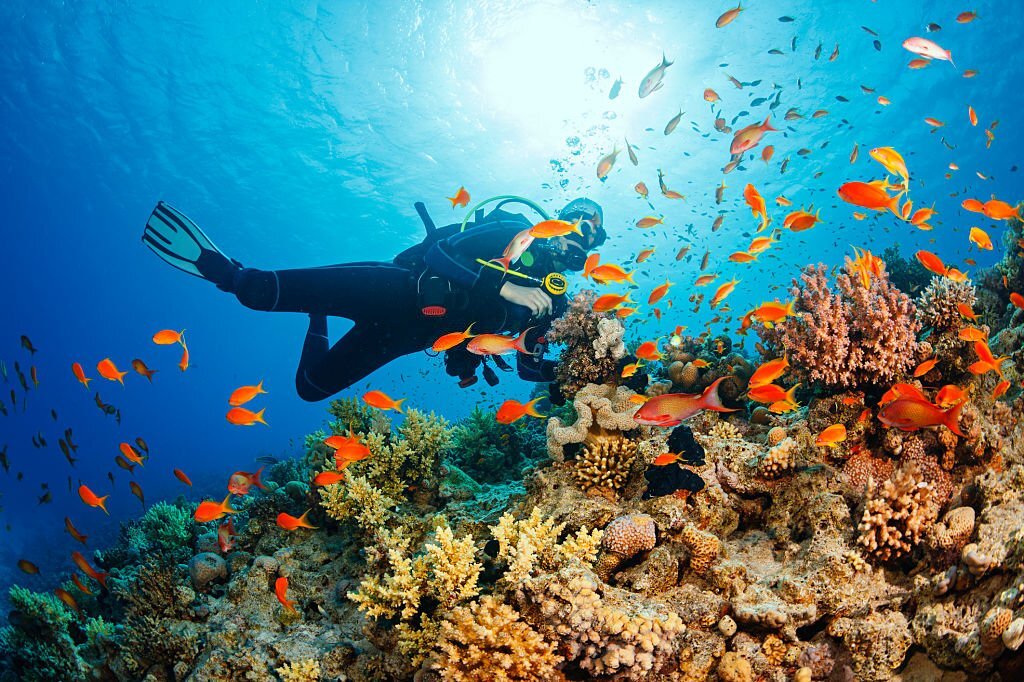Coral Reefs and the Great Barrier Reef:
1. The Great Barrier Reef, Australia:
- Location: The Great Barrier Reef is situated in the Coral Sea off the coast of Queensland, Australia.
- Significance: It is the world's largest coral reef system and a UNESCO World Heritage site. The reef covers an area of over 133,000 square miles and is home to a remarkable diversity of marine life.
2. Coral Reefs:
- Ecosystem: Coral reefs are underwater ecosystems created by colonies of tiny organisms known as coral polyps. These ecosystems provide a habitat for numerous marine species.
- Biodiversity: Coral reefs are often called the "rainforests of the sea" due to their exceptional biodiversity. They house an array of marine life, from colorful fish to intricate invertebrates like sea anemones and sponges.
3. Marine Life:
- Coral Species: The Great Barrier Reef is home to a variety of coral species, with over 400 different types of coral, each contributing to the reef's unique structure and beauty.
- Fish: It supports a diverse range of fish species, including clownfish, parrotfish, and butterflyfish.
- Mammals: Dolphins and dugongs are among the marine mammals found in the vicinity of the reef.
- Sea Turtles: Several species of sea turtles, including the loggerhead and green sea turtles, nest and forage in the region.
4. Threats to Coral Reefs:
- Climate Change: Rising ocean temperatures due to climate change can lead to coral bleaching, which is a major threat to reefs.
- Ocean Acidification: Increased carbon dioxide in the atmosphere also leads to ocean acidification, which can harm coral structures.
- Overfishing: Unsustainable fishing practices can disrupt the balance of reef ecosystems.
- Pollution: Runoff from the land, including agricultural chemicals and plastics, can damage coral reefs.
5. Conservation Efforts:
- Marine Protected Areas: The Great Barrier Reef Marine Park Authority manages the reef and enforces regulations to protect it.
- Scientific Research: Researchers study the reef to better understand its ecology and the threats it faces.
- Public Awareness: Raising awareness about the importance of coral reefs and the need for their conservation is crucial.
The Great Barrier Reef and coral reefs in general are not only natural wonders but also vital for the health of our oceans. Their beauty and biodiversity make them a subject of fascination for marine biologists and nature enthusiasts alike. Efforts to preserve and protect these ecosystems are essential to ensure they continue to thrive for generations to come.




Comments (0)